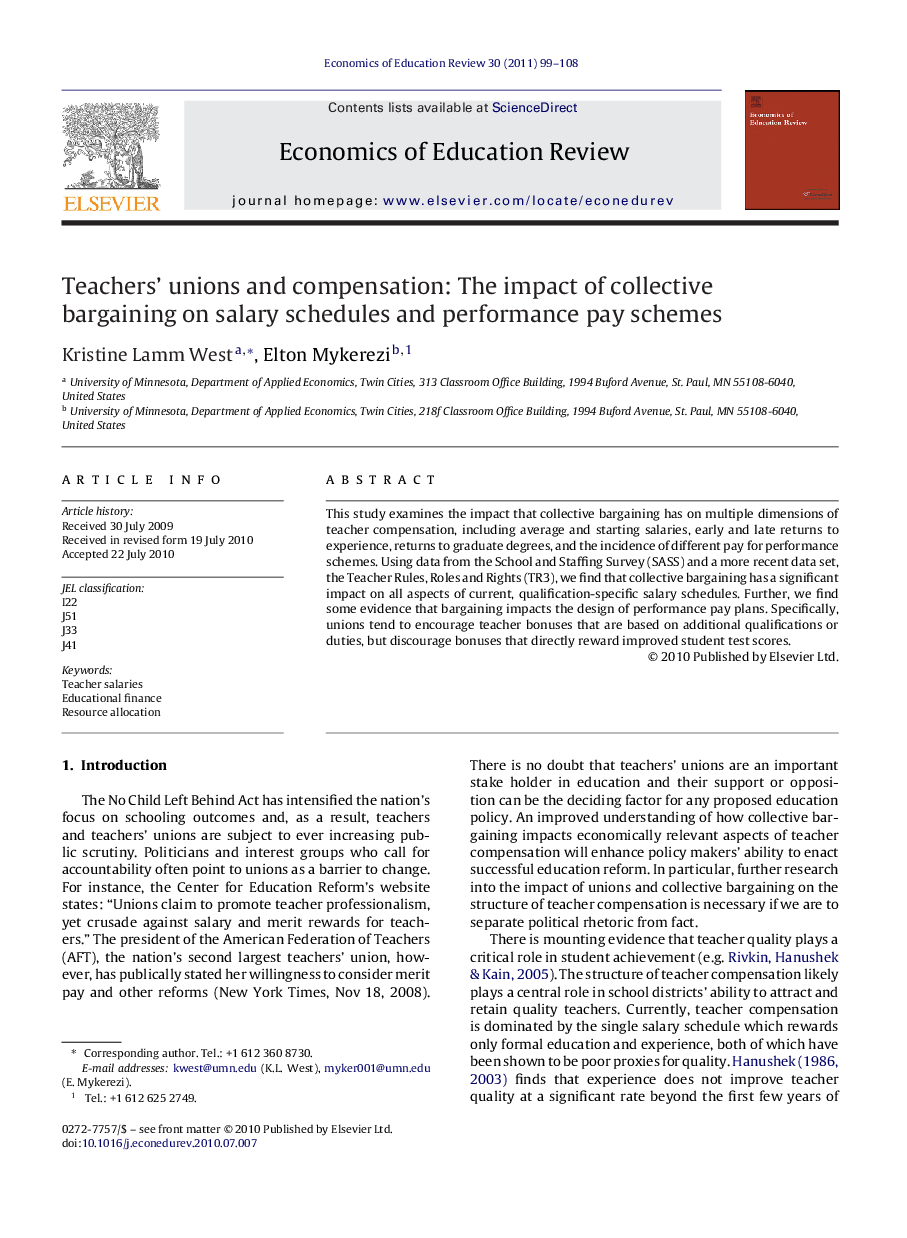| Article ID | Journal | Published Year | Pages | File Type |
|---|---|---|---|---|
| 354456 | Economics of Education Review | 2011 | 10 Pages |
This study examines the impact that collective bargaining has on multiple dimensions of teacher compensation, including average and starting salaries, early and late returns to experience, returns to graduate degrees, and the incidence of different pay for performance schemes. Using data from the School and Staffing Survey (SASS) and a more recent data set, the Teacher Rules, Roles and Rights (TR3), we find that collective bargaining has a significant impact on all aspects of current, qualification-specific salary schedules. Further, we find some evidence that bargaining impacts the design of performance pay plans. Specifically, unions tend to encourage teacher bonuses that are based on additional qualifications or duties, but discourage bonuses that directly reward improved student test scores.
